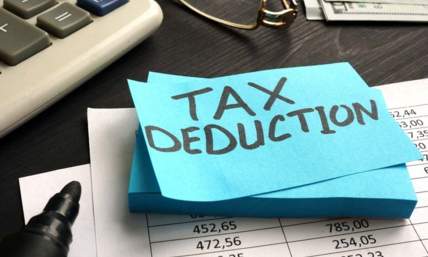Why do Jobs Hold Your First Paycheck? - The Full Breakdown
When you start a new job, it is important that you find out where you stand in terms of paychecks. Upon your interview, you will probably be made aware of things such as the amount you will be paid, and whether your pay will be monthly, weekly, or bi-weekly. But, what you might not have thought to ask is when you should expect your first paycheck.
You might simply expect to receive your paycheck on the first scheduled payday after you start your job, however this isn’t always the case. In fact, sometimes employers will hold back your first paycheck. But, is this allowed? And if it happens to you, when should you expect to be paid?
In this guide, we’ll be taking a look at everything that you need to know about your first paycheck. So to find out more, keep on reading.
Do All Employers Hold Your First Paycheck?
Before we go any further, it is incredibly important that we define exactly what is meant by holding your first paycheck. If you are unfamiliar with the company that you are now working for, it is easy to be led into thinking that your paycheck has been held, when in reality it is simply delayed. It is illegal for employers to hold your first paycheck, so no company will do this, but you might find that you are paid for your work much later than you expected.
If this happens, it is likely because your paycheck is delayed. The majority of the time, this will happen if the company you are now working for pays in arrears. This is something that has become quite common, and it happens when employees are paid for work that they have completed during a previous pay period, instead of the current one. If you are a new employee, you will not have worked in the last pay period, so you will not be paid anything in that paycheck.
So, no companies will hold your first paycheck because this is against the law. This means that if you do not receive your first paycheck when you expected, it is likely because your pay has been delayed. This is why you should discuss when you should expect your first paycheck before you start your new job.
Also read: Do Paychecks Expire?
Why do Jobs Hold Your First Paycheck?
As we have said, it is actually illegal for companies to deliberately hold your first paycheck, simply because you are a new employee. This is something that many new employees worry about because there have been a lot of rumors about employers with-holding your first paycheck until you have worked at the company for a certain period of time. But, this doesn’t actually happen. This entire rumor has come about because of confusion about when you should get your first paycheck.
When you are offered your job, you will usually be informed about the payroll schedule, including the pattern in which you will be paid and what date the money should be deposited into your account. But, unless you ask, you will often not be told about how the company pays. As we said earlier, many companies pay in arrears and this payment schedule can typically be confused for your paycheck being withheld. That is why it is very important that you speak to your new employer about the company’s payment schedule before you start. This will avoid any confusion and stop any animosity before it begins.
Also read: What Are Employment Verification And Proof Of Income Documents?

How Much Money Should be in My First Paycheck?
When you first start a new job it can be both exciting and nerve-wracking at the same time. Actually starting a job can be very exciting because it is opening new opportunities for you. But, if you have household bills to cover, then it can be rather stressful, especially when you are trying to schedule them around your first paycheck. This is made even worse if you don’t know how much money you should expect in your first paycheck.
Figuring out how much money you should receive in your first paycheck can be quite confusing, especially if you are salaried. So, let’s take a look at some of the factors that will influence this:
-
Your Start Date
It is rare that people will begin working for a company on the first day of the month. Due to this, your first paycheck will almost always be less than what you should expect for future paychecks.
-
Deductions
The value of your first paycheck will also be influenced by the number of deductions that you are taking. So, money will be deducted for things such as taxes, health insurance, etc.
-
Payment Schedule
The amount that you are paid will also be influenced by the payment schedule your employer follows. If your employer pays weekly, then it is likely that the value of your first paycheck will be much less than if you were paid monthly.
Also read: 12 Ways Payroll Data Can Help Your Small Business Save Money

How Will I Receive My First Paycheck?
One of the other things that you should speak to your new employer about is how you will receive your first paycheck. There are now a handful of different ways through which employers will deliver your paychecks, and it is generally standard practice from your first paycheck going forward. It is important that you know how you will receive your paycheck as this will impact when you get paid for the work that you have done.
Here are the main ways that paychecks are received:
-
Direct Deposit
With this method, the money is deposited directly into your bank account on the day that you are due to receive your paycheck. For this method, you will have to provide your bank details to the company ahead of the date upon which you are due to be paid.
-
Debit Card
A less common way for you to receive your paycheck is directly onto a debit card. This is rare, but some companies offer debit cards to all employees, wages are then added to these cards to be used as each employee wants.
Finally, some companies still offer physical paychecks to their employees. These paychecks are either posted to you, or are collected from the HR department. They can then be deposited into your bank.
Also read: 10 Things You’ll Need from Each Employee to Achieve Efficient Payroll Processing
So, When Will I Receive My First Paycheck?
Companies are not allowed to hold your first paycheck, so you might be wondering when you should expect to receive it.
Generally speaking, unless you have agreed something with your new employer, you will be paid on the first company-wide payday. The only time that you might not receive your paycheck on this day is if you were hired after the payroll has already been organized for that month.
Most of the time, if this occurs you will be paid for the days that you worked on the following payday, or the company will specifically write you a check to cover those days. But, you will never have your first paycheck held back. To avoid any worry of this happening, discuss how and when you should receive your first paycheck with your new employer.
Also read: What Are The Ways To Better Manage Payroll In Your Business?

Summary
So, in short, companies cannot hold the first paycheck of new employees because this is against the law. If you do not receive your first paycheck when you expected it, it is likely because it has been delayed. To avoid any confusion, you should discuss when you should expect to be paid with your employer before you start your new job.
You should also keep a record of any check stubs after a check has been paid. These stubs are crucial in order to keep a record of a particular transaction, although these are far less common in an age of online payments.















